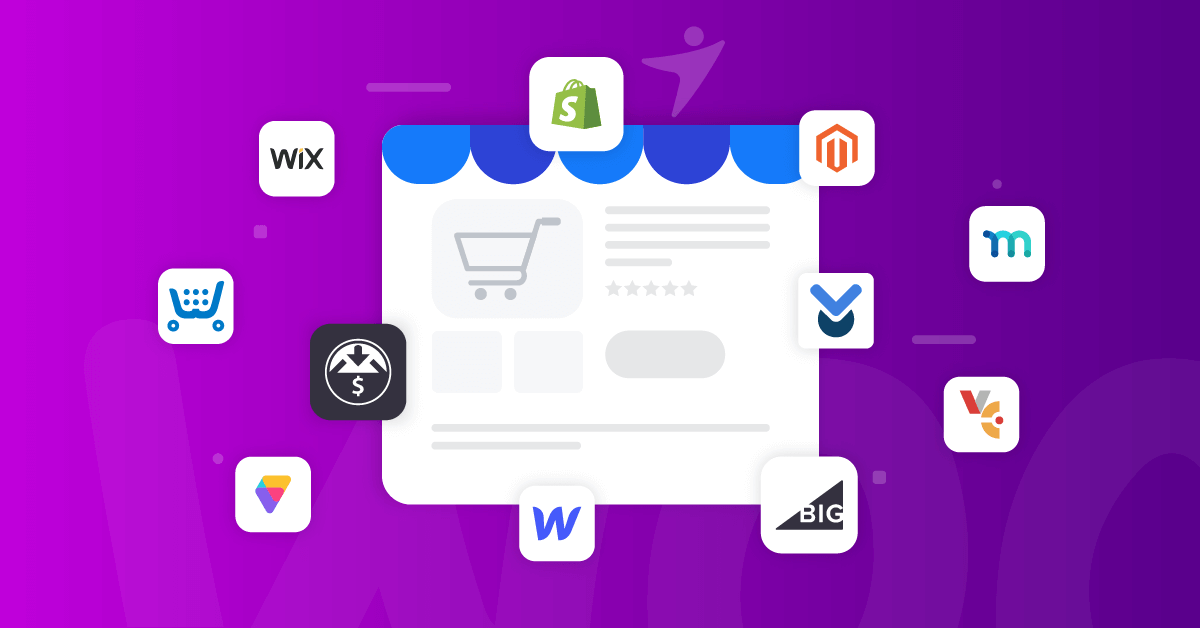Creating your first website as a blog or portfolio can be a simple task. But how about adding full ecommerce to your existing website?
In today’s article, I want to share my experience with various WooCommerce alternatives to help you choose the most suitable solution for your business model.
WooCommerce has been the to-go e-commerce plugin for most WordPress shop sites thanks to its vast array of addons/extensions. Being built for generic user demands, however, WooCommerce can be so… much if you have a specific sales scheme.
Let’s go through some of WooCommerce highlights:
- Active sites: 5,000,000+
- Product types supported: free for selling physical products and downloads; paid plan for selling subscriptions, memberships, bookings, bundles, and customizable products ($49 ~ $249 per year)
- Pricing: basic features are free to use, you’ll have to pay apiece for paid extensions with advanced functions
In case it’s becoming overwhelming to sift through all the solutions out there, these are some WooCommerce alternatives that are worth checking out.
1. Shopify

Perhaps redundant to introduce, Shopify is now a huge ecommerce website builder with a worldwide user base. It comes with full-fledged features for online store including coupons, email marketing, abandoned cart automated email, or conditional discounts.
Some key facts:
- Active sites: 2,000,000+
- Pricing: you will have to pay monthly basic cost ($29 at least), app extension fees, commission per transaction, and even additional transaction fees depending on your payment gateway of choice
In return for those expenses, you will get a full-fledge ecommerce toolbox to build your online store with complete ease of mind. Check out this prices review to learn more about Shopify.
As you can see, there are many valid reasons to consider migrating from WooCommerce to Shopify.
2. Easy Digital Downloads
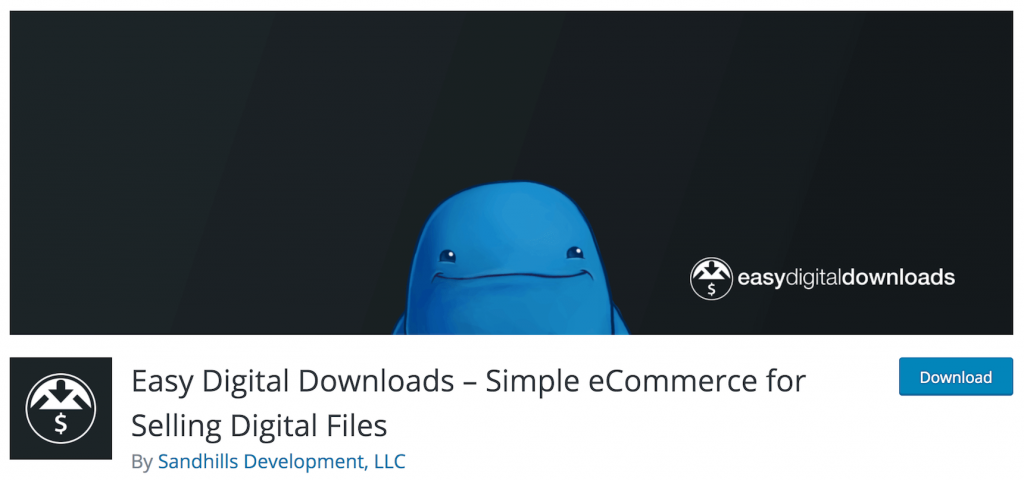
Easy Digital Downloads plugin (EDD) is the most powerful and easy way to sell digital products from your WordPress-powered website. Unlike WooCommerce, with which you will have to upgrade to sell subscription, courses or member-only content; you can get EDD 100% free on the WordPress plugin repository.
Some key information about EDD:
- Active sites: 100,000+
- Pricing: completely free to sell downloadable software, media files, and recurring services
With Easy Digital Downloads, you can create custom My Account page, Check Out page, transactional pages and all thanks to its tons of shortcodes. It helps display various parts of the plugin easily and exactly with the necessary information to subscribers and buyers.
EDD comes with a handy sidebar widget to display the shopping cart. As for payment methods, it has 3 built-in gateways: PayPal Standard, Stripe and Amazon for credit card processing. Want more? You can look for other payment gateways in the EDD Store.
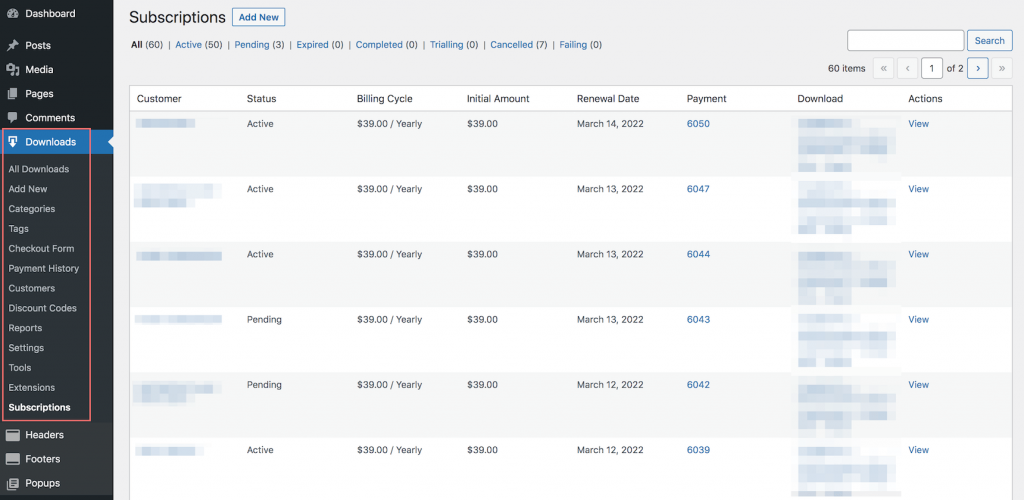
If you want to set up an affiliate program on EDD, you will need to install another plugin such as AffiliateWP – built & guaranteed by the same developers of EDD. The advantage of this is that it will take less time for you to get used to the navigation of their plugins since they share almost the same feel of UI/UX.
Already geared toward an affiliate scheme for your website? Please see the next WooCommerce alternative option.
3. Ecwid

Ecwid stands for Ecommerce Widget for your WordPress website. Later on, it has been doubled down on features and become a powerful platform to help you sell products and services on standalone site, custom project, popular marketplaces and social media.
Some key information about Ecwid in 2021:
- Active sites: 300,000+
- Pricing: free to use Ecwid WordPress plugin, premium plans start from $15 per month
- Multi-platform supported: WordPress, Wix, Weebly, Squarespace, Joomla & more
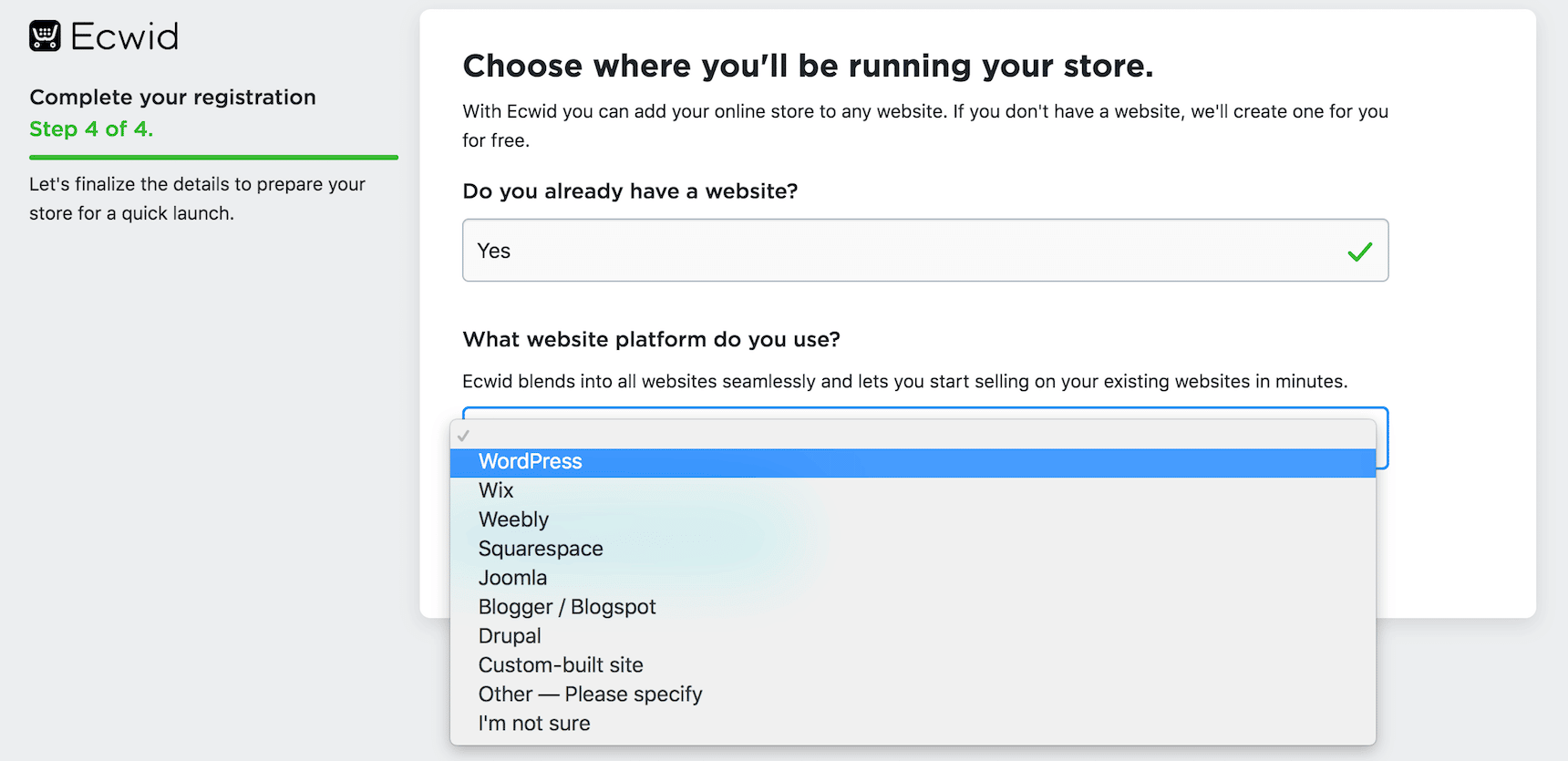
Even on the free plan, Ecwid allows you to create gift cards and display them in the footer navigation menu. However, you are limited to only 10 non-digital products on the free plan. Upgrading to Venture plan will get you 100 products and Business plan with 2,500. With a single premium plan, you will be able to sell via other platforms and site builders.
After activating the Ecwid Ecommerce Shopping Cart plugin, you will see 9 ready products with demo images, text, and metadata to help you quickly understand its dashboard. Comparing to WooCommerce, Ecwid has a straightforward and much more friendly interface to non-techies.
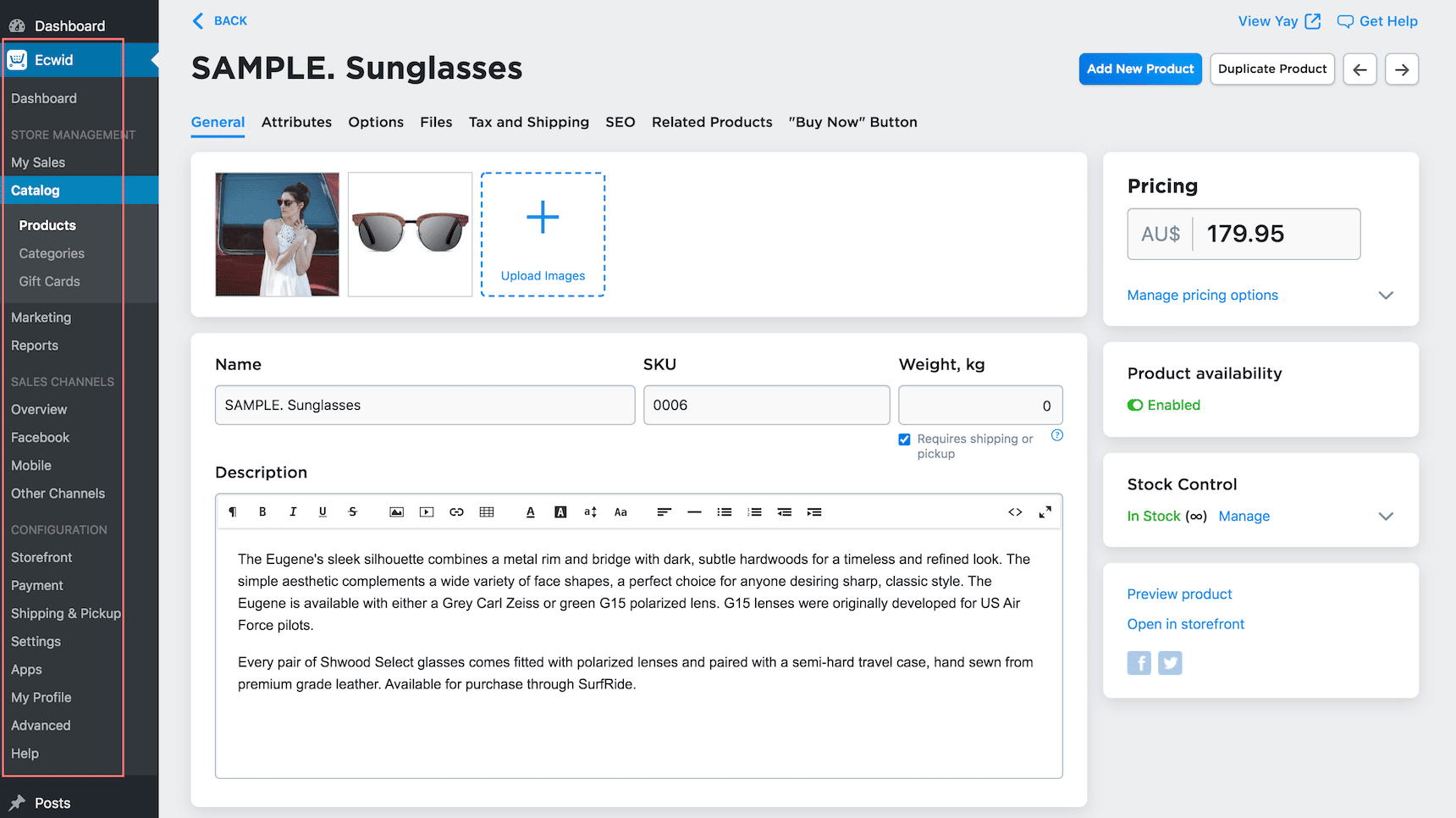
Ecwid Instant Site is poised as a solid competitor to Shopify in terms of the fast and easy to setup site-building process. They make it very intuitive to connect your domain, customize graphic aspects, and use built-in ecommerce blocks.
Key features:
- Clean and modern UI/UX
- Point of sales supported
- Android and iOS store management app
- Sell on Amazon and eBay (above Venture plan)
Overall, I am intrigued by their starter-friendly plans since the usage policy push no time limit to the free plan. So it’s free to start exploring all advanced features that Ecwid offers before deciding to make a long-term investment.
Check out how you can sell online, in-store, and on-the-go with Ecwid today.
4. MemberPress
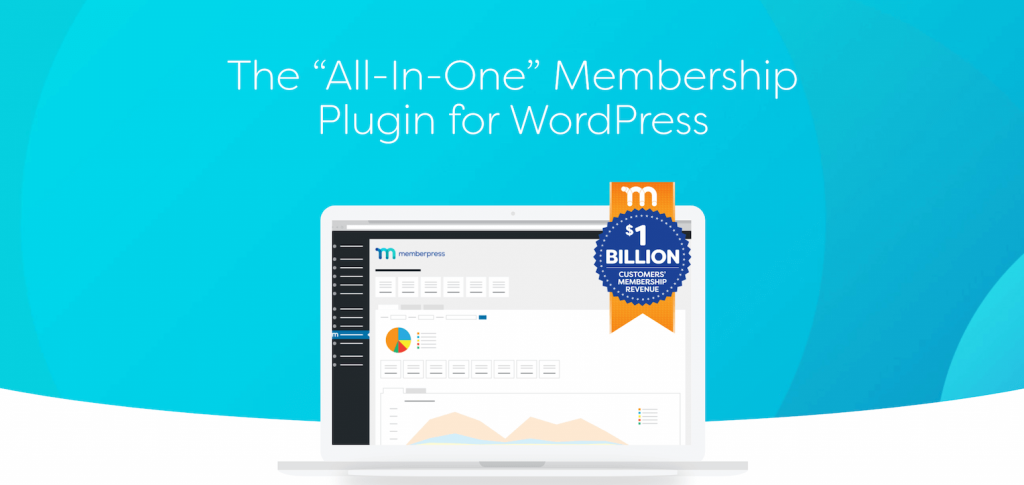
Unlike WooCommerce or Ecwid, MemberPress is not a shopping cart plugin.
MemberPress use cases suggest a dedicated subscription site where registered users get access to premium content while non-users do not.
Some key information about MemberPress:
- Active sites: 50,000+
- Pricing: $149/year to use on 1 site
- Included & integrated with many third party solutions for processing payments, running an affiliate program, email (Stripe, ConvertKit, Drip, MailChimp, HelpScout, etc.)
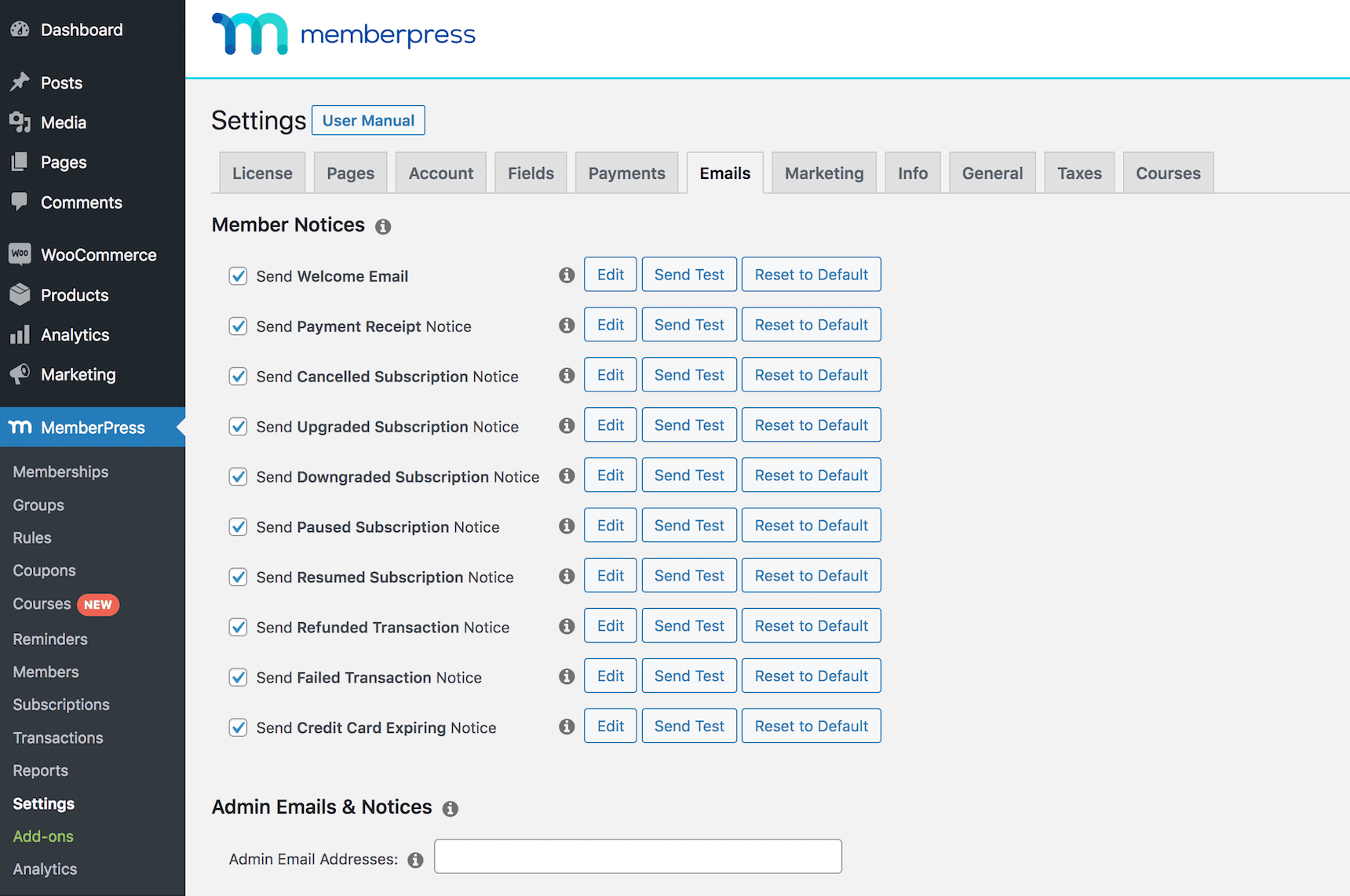
MemberPress comes with a plenty of great features to build a strong and beneficial community:
- Compatible with all major themes
- Integrated affiliate program
- Business reports, and Google Analytics with MonsterInsights
- Users can edit their subscription status
Although the Caseproof team behind MemberPress doesn’t set out a free plan, they do offer a 14-day refund policy. So you may start exploring MemberPress today to see if it has what you need or even exceed that. 😉
5. WordPress Download Manager

WP Download Manager comes with a free plugin ready for managing and showcasing document files. If you want to set up an ecommerce site to effectively sell those downloads, you need to install their Digital Store freemium package.
You will get in a user interface similar to EDD’s, with a fairly elegant design. Here you can build your ecommerce store using built-in templates for download links, pages, and email notifications.
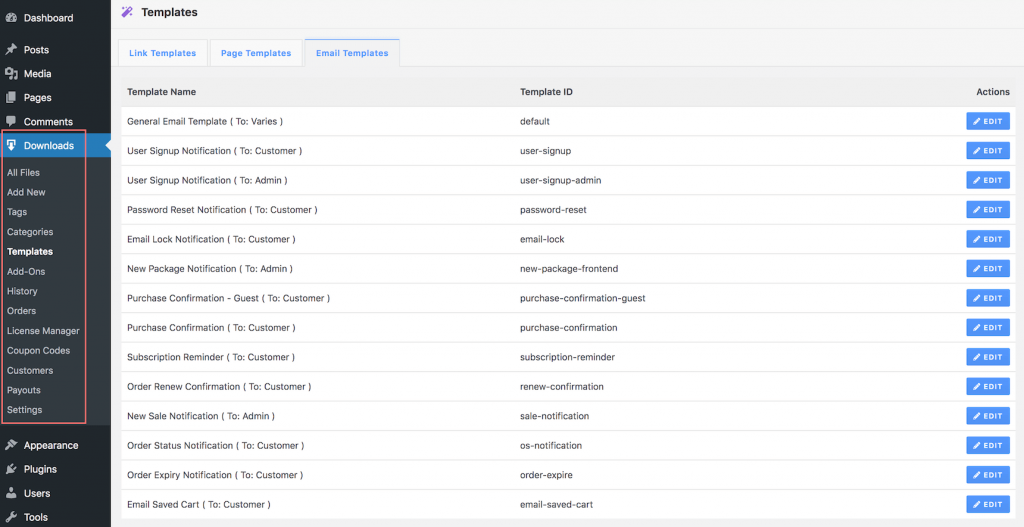
It’s also easy to customize transactional emails thanks to their Email Template Editor tab on the same page. With this handy navigation, you can edit templates variables and preview it without reloading the page.
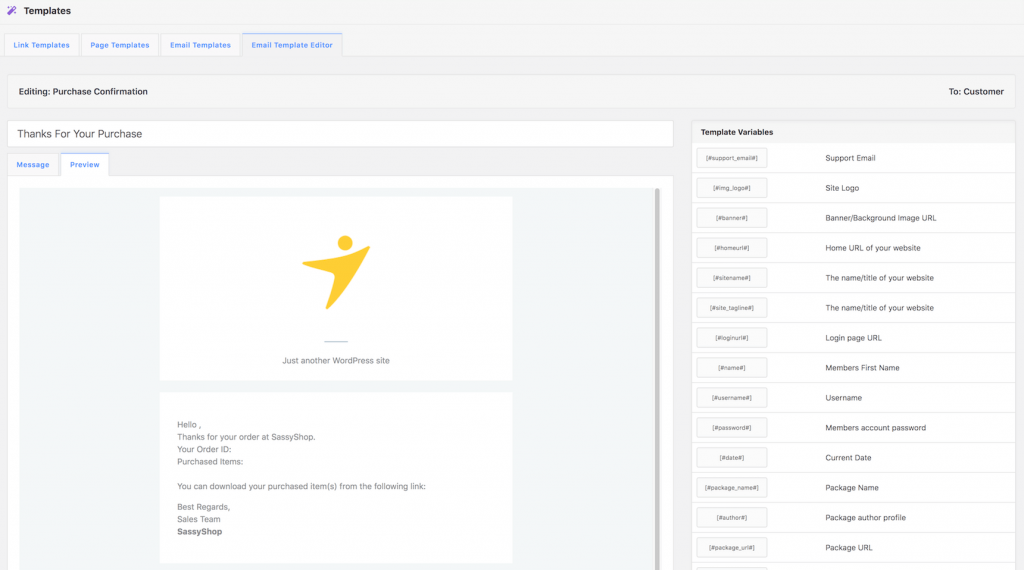
Some key information about WP Download Manager:
- Active sites: 140,000+
- Pricing: free for downloadable document management, premium plans starting from $59/year for selling all digital products
- Has various free download manager add-ons and a dedicated theme called Attire
6. BigCommerce

Among WooCommerce alternatives, BigCommerce is a Shopify closest option. It provides a multi-platform framework for building and scaling your e-commerce kingdom. That said, it charges no commission fee on all plans but you might end up spending more on its store design tools and ecommerce apps.
BigCommerce appears as a new challenger to the WordPress ecommerce market by launching its brand new BigCommerce for WordPress plugin. With a mission to let you build complex product catalogues, manage large traffic volumes, orders and analytics, it grows to over 1,000 active installations and counting.
Some key facts of non-WordPress BigCommerce:
- Active sites: 100,000+
- Pricing: Standard Plan for $30 per month
If you’re from an established enterprise and want to expand your business to multiple channels, BigCommerce is a suitable choice for you.
Not a fan of WordPress? I guess it’s time to move on and consider other ecommerce alternatives…
7. Wix eCommerce (formerly Wix Stores)
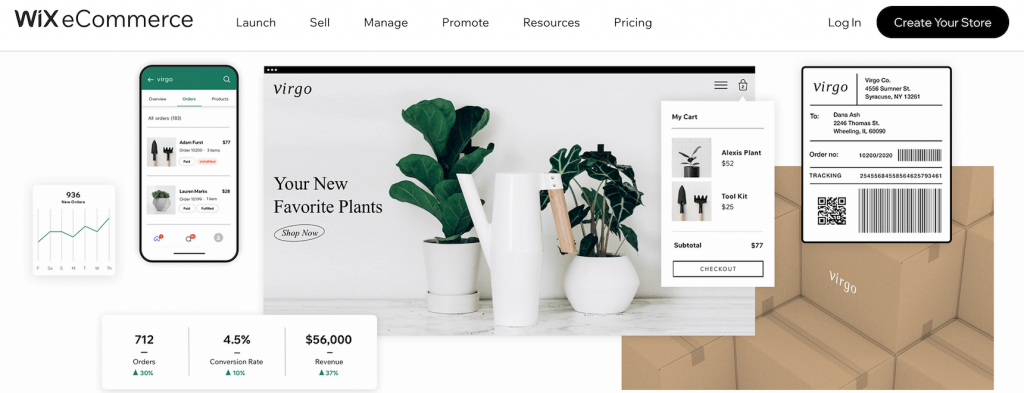
Founded in the same year of 2006 with Shopify, Wix is also a long-existing website builder platform with proven efficiency. Not until early 2020 that Wix launched an extended eCommerce solution called Wix eCommerce.
Some key facts of Wix eCommerce:
- Wix active sites: 1,000,000+
- Pricing: Business Basic plan for $17 per month
- Supported types of products: physical goods, subscriptions, print on demand, dropshipping, point of sale (POS)
Compared to Shopify, Wix eCommerce is a slightly cheaper online store builder for newcomers.
- Customizable storefront, cart and checkout
- Sell on social media platforms & marketplaces (Amazon, eBay…)
- Integrated Wix Payments without relying on a third-party payment gateway (transaction fee applied)
- Can be enhanced with Wix App Market
- Best for small-scale selling
If you have just a smaller range of products to sell, check out Wix eCommerce today.
8. Shoprocket

Shoprocket is a new kid on the block to enable ecommerce shopping on your website. Since Selz was acquired by Amazon, Shoprocket is considered the best alternative to Selz.
It provides your new store with a well-built structure and customizable design. Unlike Shopify, this platform doesn’t charge you transaction fees, setup fees, or cancellation fees.
Features:
- Supports 30+ payment methods powered by Stripe, PayPal, and PayU.
- Offers white-labelled versions
- Unlimited storage and bandwidth
- Integrated abandoned cart recovery system
- Automated shipping and tax calculation
9. Webflow eCommerce

Inherited from Webflow’s flexible web design platform, Webflow eCommerce has a great visual interface and easy custom design.
Some key facts:
- Active sites: 300,000+
- Pricing: entry plan is $29/month when paid annually, plus transaction fee of 0-2%
When placing head to head with WooCommerce or Shopify, Webflow eCommerce lacks advanced sales tools and third-party apps. Yet it’s the most user-friendly and easy to use e-commerce platform to start with. When your business grows and scales, you can easily export product data and migrate to another e-commerce platform.
10. Volusion

Key facts:
- Active sites: 30,000+
- Pricing: Personal Plan for $29 per month
The back-end of Volusion is somewhat not easy to navigate. However, it still opens up an insightful window if you are an analytics-driven store owner and not so fussy about storefront design.
Want to see what a storefront built with Volusion looks like? Check out their Merchant Stories.
Or start selling with Volusion here.
Bonus: The Best B2B Ecommerce CMS
In this section, I’m showing some underestimated e-commerce website builders as the potential WooCommerce alternatives. They might not be the most popular platforms that you often hear of, yet packed with ecommerce-dedicated designs and features.
11. Magento

Magento is the ideal choice for well-established companies that want to jump into e-commerce.
Key facts:
- Active sites: 700,000+
- Gears towards companies and enterprises
- Pricing: free to use Magento Open Source, paid to use Magento Commerce
When it comes to multi vendor marketplace, Magento is the sole alternative to WooCommerce. Just like WooCommerce requiring its marketplace plugins, in order to run a marketplace on your Magento website, you’ll need to install a multi-vendor extension such as:
- Multi Vendor Marketplace by Webkul
- Multivendor Marketplace by Purpletree
It may take lots of time and effort to develop your ecommerce store with Magento. However, to compensate for your investments, Magento offers better performance especially when you scale up. In fact, it has lower HTTP requests than other eCommerce platforms like Shopify or WooCommerce. If you need help with Magento development, you can hire Magento developer or check out Magento upgrade service.
12. Virto Commerce

Virto Commerce is a dedicared B2B & B2B2C platform for complex ecommerce.
- Active sites: 100+
- Pricing: pay-as-you-go
Virto Commerce is here to be a sophisticated, cloud-first platform to help deploy agile-friendly software. It’s also effective to scale on demand to manage peaks of multiple and complex B2B scenarios.
Since it has an interface that takes some time to get used to, you can always reach out for high-end support.
Conclusion
Making a website that sells goods is a whole new frontier and requires lots of skills and research. WooCommerce is now the most popular option for an ecommerce website. But if you belong to the majority of business owners who are not technical or creative, you will need to rely on WordPress experts and developers help on the way.
I hope you’ve come to the right place when looking for WooCommerce alternatives.
Whether you are just jumping into a brand new business or want to level up your company’s competition, choosing the perfect plugin can help you do it.
